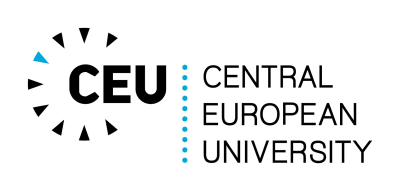Founded in 1991, Central European University(CEU) is based on the premise that human fallibility can be counterbalanced by the critical discussion of ideas and that this critical spirit can be sustained best in societies where citizens have the freedom to scrutinize competing theories and openly evaluate and change government policies. CEU is one of the most densely international universities in the world. Its rare mix of nationalities, ethnicities, and cultures creates an ideal environment for examining such “open society” subjects as emerging democracies, transitional economies, media freedom, nationalism, human rights, and the rule of law.
CEU is known for excellence in teaching and research - with purpose. At the core of its mission lies a set of principles: the pursuit of truth wherever it leads, respect for the diversity of cultures and peoples, and commitment to resolve differences through debate, not denial.
Our Mission
Central European University is an institution of advanced research and teaching, dedicated to socially and morally responsible intellectual inquiry. Having launched a new undergraduate offer in 2020, CEU’s distinctive educational program builds on the research tradition of the great American universities; on the most valuable Central European intellectual traditions; on the international diversity of its faculty and students; on its commitment to social service; and on its history of academic and policy achievements in transforming the closed communist inheritance.
CEU is committed to promoting the values of open society and self-reflective critical thinking. It aims at excellence in the mastery of established knowledge, courage to pursue the creation of new knowledge in the humanities, the social sciences, law and management, and engagement in promoting applications for each, in particular through their policy implications. CEU is a new model for international education, a center for the study of contemporary economic, social, and political challenges, and a source of support for building open and democratic societies that respect human rights and human dignity.
How CEU Works
Central European University ("CEU" or the "University") was founded in 1991 to support the democratic transitions in Central and Eastern Europe and the former Soviet Union. In 2020, CEU launched a new undergraduate offer. The University is deeply international: it is home to students from more than 100 countries and faculty from over 50.
The mission of the University, conducted through its 13 academic departments and its world-leading research centers, is to promote open societies and democracy, through advanced research, and research-based teaching, primarily in the social sciences and humanities. The language of instruction is English.
Accreditation
United States Accreditation
CEU holds an absolute charter from the Board of Regents of the University of the State of New York, for and on behalf of the New York State Education Department. In the United States, CEU is accredited by the Middle States Commission on Higher Education (MSCHE, address: 3624 Market Street, Philadelphia, PA 19104, United States, phone: (1 215) 662 5606). The CEU Status of Accreditation is available from the MSCHE website.
In Austria, CEU is authorized to operate all of its US degree programs by the decision of the Agency for Quality Assurance and Accreditation Austria (AQ Austria) under para 27 sections 1-4 of Austria’s law on quality assurance in higher education.
Austrian Accreditation
Austria Accreditation SealIn Austria, CEU's Austrian entity Central European University Private University (CEU PU) is recognized as a private higher education institution under §§ 24 and 25 HS-QSG and § 1 Private University Act (PUG) in conjunction with § 14 Private University Act (PrivHG). CEU PU is accredited by the Agency for Quality Assurance and Accreditation Austria

